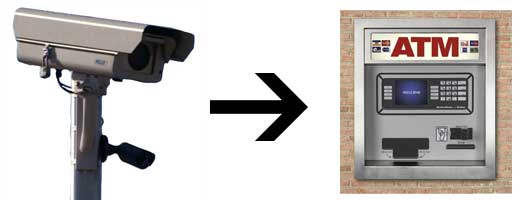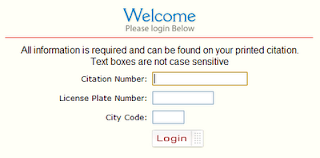Can Wireless Regulate Hazardous Driving?
Written by: J. Gerry Purdy of MobileTrax, 4/28/2010
With a topic like this, I absolutely have to say I believe in speed limits, and I support the hard-working and often not appreciated public safety officers that help deal with accidents and problems that deserve their attention.
However, when you consider the time that highway patrol officers and local police officers spend on the side of the road with a radar gun simply to manage those who are driving above the speed limit, it’s easy to see that this is not a good, efficient way for these public safety officers to deal with the problems of society -- especially when there are so many drug problems and serious crimes that need greater attention.
The nature of a ‘speed limit’ has become accepted in society as a ‘guideline’ – a general indicator of the speed that people should travel. Of course, unless you’ve been a recluse at home for the past few years, drivers on major Interstate highways almost never drive slower than the posted speed limits. Most states have established laws that define ‘speeding’ as a driver and the car exceeding the posted speed limit by 10 mph. Thus, if the posted sign says 65 mph, then most of the time you won’t get pulled over for a speeding ticket when doing 74 mph. Bad weather and driving congestion naturally alter the average speed downward.
When I see these ‘speed traps,’ I get mad -- but not for the reason you might think. I’m not upset that police officers are trying to catch speeders. Rather, I’m upset because these paid guardians of our public safety are wasting so much of their valuable time having to sit on the side of the road just to give out a few tickets to those who are driving too fast.
I believe there’s a much better solution, and there’s already an indication that systems are coming into place that may eliminate the need for any highway patrol officer to ever worry about simple vehicle speed enforcement again.
Here’s the way I believe this new solution should work in the long term. All cars will have multiple transmitting radios -- from Wi-Fi to 3G or 4G cellular to mesh networking -- so that cars can network with each other and be connected to the highway patrol. Most cars have a toll sensor in the window as well that isn’t active but does allow the car to be recognized when it passes a toll booth or toll lane.
There are two basic driver issues that need to be addressed: 1) those that speed and 2) those who drive recklessly.
Regarding driving recklessly (or appearing to do that via something wrong with the car) should be dealt with via intervention. First, the local wireless mesh should result in vehicles self-programmed to get out of the way. Second, the local police and highway patrol should have the right to intervene and stop the car. We’ve all seen situations where two cars are racing each other or someone is participating in ‘road rage’ with someone else by trying to get out ahead and then cut them off, using their car as a weapon. These situations can easily be detected. Once that happens, the local police or highway patrol should take over control of the car and pull them safely over to the side of the road.
For those that want to go faster than the posted speed limit, e.g. they want to drive 80 mph in a 65 mph zone, it seems we should change the entire process of scolding violators to automatically generating revenue for the privilege of driving faster and getting to your destination more quickly. Once cars are outfitted with wireless communications, public safety can communicate with each car, and the cars (and trucks) can then also communicate with each other (via mesh networking).
Here’s the core recommendation: each state sets up a ‘speed tax’ that is posted (and available on the displays in the wireless-enabled vehicles). Then, cars that speed are simply charged a fee based on how fast they are going. Want to get to grandma’s faster? OK, drive 75 mph instead of 65 mph, but you’ll have to pay a toll (which might be called euphemistically a ‘speed tax’) for doing that. The speed tax schedule could look something like this:
* Less than 40 mph, $1 per mile (yes, charge people for going too slow)
* 40 to 65 mph, $0
* 65-69 mph, $.10 per mile in town, $.05 out of town
* 70-74 mph, $.20 per mile in town, $.10 out of town
* 75-79 mph, $.50 per mile in town, $.15 out of town
* 80-84 mph, $1.00 per mile in town, $.20 out of town
* 85-90 mph, $2.00 per mile in town, $.25 out of town
* Greater than 90, the vehicle is slowed down by the highway patrol or permission must be granted by the public safety officials, e.g. an emergency.
Thus, if you need to drive 200 miles to grandma’s house but wanted to drive at 80 mph, you’d get charged 200 miles at $.20/mile or $40 for the privilege to do so.
You can see part of these systems already in place in Florida were coming out of Miami, you can get access to the SunPass extra lanes that are not as crowded. The Florida Turnpike system adjusts the charge to use the extra lanes based on the time of day. Thus, during rush hour the charge is typical $2.75 and off-peak it’s $.35. While they don’t charge for the speed you are driving yet, there’s no reason they couldn’t add that capability in the future. And, its developments like this that lead to lanes that can charge for access and then charge you for the speed you drive in the special lanes.
And perhaps 50 years from now, all cars will have wireless, we’ll be able to eliminate speed traps, and highway patrol officers can utilize more of their available time to truly helping with public safety. Wireless technology will be used to charge for the right to drive faster. Speeding tickets will morph into a speed tax, while having the ability to prevent unsafe conditions that cause a multitude of accidents.




